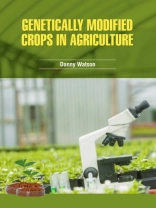Genetically modified crops are plants used in agriculture, the DNA of which has been modified using genetic engineering methods. In most cases, the aim is to introduce a new trait to the plant which does not occur naturally in the species. Examples in food crops include resistance to certain pests, diseases, or environmental conditions, reduction of spoilage, or resistance to chemical treatments, or improving the nutrient profile of the crop. Recently rapid advances in the development and commercialization of transgenic crops across the world have been witnessed both in terms increased crop coverage and economic benefits. Genetically modified foods are foods derived from genetically modified organisms have had specific changes introduced into their DNA by genetic engineering techniques. The main aim of genetically modified crops is to produce a food that is able to survive even if any harmful chemicals or pesticides or herbicides are sprayed. Other benefit of genetically modified crops is to make food stay fresh for a long time. Some of genetically modified crops and food are corn, tomato, beets, potatoes, sprouts and alfalfa. It involves the insertion or deletion of genes. Examples in non-food crops include production of pharmaceutical agents, biofuels, and other industrially useful goods, as well as for bioremediation. This book covers those facets, from the source of the gene, compositions of a gene construct, method of gene delivery, and result of gene integration and expression, to effects of the transgene on plants and the ecology.
Danny Watson
Genetically Modified Crops in Agriculture [EPUB ebook]
Genetically Modified Crops in Agriculture [EPUB ebook]
Acquista questo ebook e ricevine 1 in più GRATIS!
Formato EPUB ● Pagine 324 ● ISBN 9781839471902 ● Casa editrice EDTECH ● Pubblicato 2019 ● Scaricabile 3 volte ● Moneta EUR ● ID 7250396 ● Protezione dalla copia Adobe DRM
Richiede un lettore di ebook compatibile con DRM












